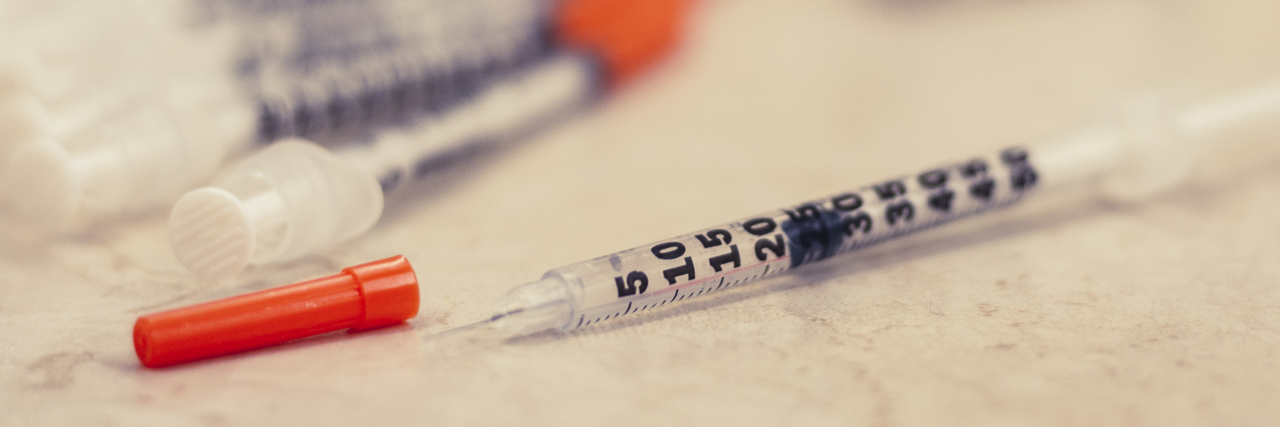After aging out of his family health insurance and switching to a cheaper over-the-counter insulin sold at Walmart, a young man with type 1 diabetes has died.
Josh Wilkerson was 27 when he died this past June, The Independent reported Monday. When he turned 26 and became too old to remain on his stepfather’s health insurance, his other option was health insurance provided by his workplace, a dog kennel in Virginia. But that plan didn’t cover his $1,200 per month insulin costs. So in late 2018 he began using the ReliOn brand insulin sold over the counter at Walmart, which costs $25 a vial.
This type of insulin is not the same kind Wilkerson had been using before. ReliOn is called “human insulin” because it is manufactured using the DNA code for making human insulin and grown inside bacteria cells. Before switching to ReliOn, Wilkerson was using analog insulin, a newer-generation insulin that is similar to human insulin but genetically altered to make it quicker-acting. Human insulin therefore lowers blood sugar levels much slower than analog insulin does — it can take hours to work while analog insulin works in minutes.
Immediately prior to his death, Wilkerson agreed to stay overnight at the dog kennel for a week to earn some extra money. During the second night, he told his fiancée, Rose Walters (who also has type 1 diabetes and had been taking ReliOn), over the phone that his stomach didn’t feel well, but he would take more insulin.
The next morning, Walters realized she hadn’t heard from Wilkerson and called him, but he didn’t pick up. She went to the kennel and found him unconscious. Doctors said he had multiple strokes and was in a vegetative state. His blood sugar was reportedly 17 times higher than normal. He was removed from a ventilator five days later.
Wilkerson’s death continues a frightening trend of people with type 1 diabetes not being able to afford their insulin and either rationing it or using a cheaper version in order to save money. A study in the Journal of the American Medical Association found that about one in four people with diabetes say they ration their medicine due to the cost, a practice that can have serious consequences.
The price of insulin has increased dramatically in the last decade. One vial of Humalog brand insulin cost $35 in 2001 and $234 in 2013. Novolog cost $289 in 2013 and $540 in 2019, and Lantus cost $244 in 2013 and $431 in 2019. People with diabetes may need anywhere from one to six vials of insulin per month.
Reasons for the price increase include the cost, difficulty and lack of incentive for creating a cheaper generic; changes to insurance policies that leave patients paying more; a patent system that gives companies a monopoly around their drugs; and manufacturers’ efforts to compensate for the rebates they offer pharmacy benefit managers in order to get insurance companies to cover their insulin.
As pressure mounts on manufacturers and insurance companies to make insulin more affordable, lawmakers have proposed a few solutions. In May, Colorado became the first state to prevent insurance companies from charging more than $100 for a 30-day supply of insulin, regardless of the amount or type of insulin they require.
In July, a group of U.S. senators introduced the Insulin Price Reduction Act, which (if it passes) would set up incentives for manufacturers to not increase their prices beyond the price of the same product in 2006 and require private insurance plans to allow people with high-deductible plans to pay the standard copay for insulin even if they haven’t hit their deductible.
Other efforts to reduce drug costs haven’t been as helpful to the diabetes community — for example, a preliminary plan to allow Americans to purchase drugs from Canada does not include insulin as one of the approved drugs.
For people with type 1 diabetes, it can feel like the world doesn’t consider their insulin and other diabetes supplies to be “necessary” — meanwhile, without insulin, they won’t survive. Type 1 diabetes is an autoimmune condition that causes the pancreas to stop producing insulin, a hormone that allows your body to turn sugar from carbohydrates into energy. Without insulin, the sugar in your blood can’t enter your cells, causing blood sugar levels to go dangerously high.
“Insurance companies make a decent amount of money off those who are insured through them, yet they are not willing to pay to keep their insured alive and well,” Audri Bluthgen wrote in an essay on The Mighty. “What kind of world do we live in?”
For more insight into the diabetes experience, check out these stories from our Mighty community:
Getty photo by Inna Luzan

